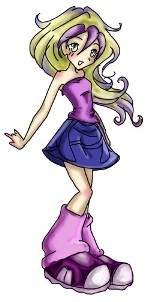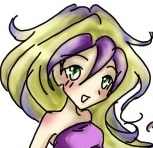What's behind the words
Last time in our test in English we had to answer these questions: What is the feminine gender for: shah, emir, pope, patriarch, bishop, and mufti? What is the masculine gender of "showgirl" or "adrenaline girl"? How can we specify if these professions refer to women or men: surgeon, archer, playwright, boxer, and bodyguard?
 | The questions were a little bit confusing for us, too, but it's worth discussing them together. Unlike Bulgarian, there is no distinction between masculine, feminine and neuter in English nouns. However, gender is sometimes shown by different forms or different words. Some nouns can be used for either a masculine or a feminine subject like "teenager" or "friend". It is possible to make the distinction by adding the words "male"' or "female" or for professions, we can add the word "woman". Sometimes nouns describing things are given gender - like the nouns "car", "ship", "train" are substituted by "she". For the words in the first question there are no corresponding feminine gender nouns, because there were no women in these positions or with such titles in the past when gender roles were strictly divided. Nowadays it is possible to see women on top positions and even women governing states. |
However, high religious posts are still out of reach for women, but I remember one exception. Recently my sister told me for Papesse Joane . If you want to know more about her, read the legend HERE. |  |
Papesse Joane is an exception of the rule or more precisely she managed to pass by the rules. Rules are imposed by the society and it is true that they change slowly. However it happens. Examples are the 50 first women Islam preachers in Morocco. In the past it was impossible for the Islam.  | The words in the second question came from show business and the television. They are nouns used only for women and this is evidence that the society imposes gender roles to people. Here, for instance, these occupations are associated to entertainment of the male audience, in particular. How many such words do you think you use every day? If you are interested in that topic, let's do some BRAIN-EXERCISING. |
THE "BAD" FEMININE GENDER Do you know the meaning of the words aviatrix, authoress and danseuse? Why do they sound so funny today? The language has evolved and these words for women aviator, author and dancer already considered archaic. Some others are still in use, even though many object to them: stewardess (now more often flight or cabin attendant of either sex), hostess, waitress, and seamstress. On the other hand, there are still many compound nouns in English for professions or positions that are formed with the word man - like policeman, businessman, watchman, newsman etc. How do we show that the person with this profession is a woman and not a man, then? We can use the word woman or lady to form the new noun - like policewoman, business lady. However, more and more are preferred words for professions that are gender neutral - i.e. the sex of the person is not emphasised - like journalist, doctor, teacher. Such words are preferred even when there are corresponding ones for both sexes - for instance police officer instead of policeman or policewoman. In Bulgarian language (which has three grammatical genders - masculine, feminine and neuter) a lot of such words - mainly for professions, are used only in masculine gender. Although there are forms in feminine gender for most professions, when they are used they have depreciatory or even negative meaning. In the twentieth century roles have been changing more and more and there are already women professors, ministers, prosecutors, rangers, soldiers and drivers. In Bulgarian language these words could be in feminine gender but in fact they are rarely used. When it happens, it is usually in a negative sense. Here are examples from the media: | Distracted driveress hits against a tree Distracted 19 years old driveresse hit against a tree with her BMW. The girl injured her head and has been taken to hospital. The young woman drove with very high speed. She drew away her attention and went out of the road. (Electronic edition of „New life" newspaper, 01/09/2007) |  | | Corporaless strips for the "Sun" 20-years old Corporal Roberta Wintertern, serves in the British army. She requested permission from her commander to take part in a photo session for "Sun" but she was denied. However, she did the session and now she will be fired, said her commander. (Electronic edition of "Sega" newspaper, 09/11/2005) |
When we read the articles above we have the impression that these two girls were very very bad they should be punished. Can you imagine what the articles would look like if they were about the perfect driving skills or the courage of women? In Bulgarian language journalists would use "women drivers" and "women corporals" or just the nouns in masculine. It seems that English and Bulgarian are quite similar in the ways they use to express attitudes towards women! Epaulettes decorate tender shoulders "Women serve in the forces of all NATO member states except for Iceland, which has no regular army. Women soldiers are fewer in the army of Poland, Italy and Turkey. The highest percentage of women military officers is in the army of the USA. One of them is the military attaché to the embassy in Sofia - the US air forces Colonel Carla Bas. "I was raised in a family of soldiers - she says. In my family we are great patriots. I was 14 when I decided to become a military officer in the US air forces." („Bulgarian Warrior", issue 6/2007) |
Do you agree now? Well, how do you think women officers are addressed in the Bulgarian army? In English - they are addressed with "madam". In Bulgarian - well, there is no accepted formal form of addressing! In fact, the use of feminine and masculine gender in the examples above expresses the different positions of men and women in society, which are determined by the stereotypical attitudes towards their roles and "value". And even new words or new meanings of words, that appeared in the language some 10 or 15 years ago, still reproduce that model like the pair of slang words, discussed in the text HERE. THE "GENDER" OF THE POSITIVE AND NEGATIVE CHARACTERISTICS May be you've already found out that words can express attitudes towards gender. Your sex could be the reason for people to expect from you to be "strong like a man" or "tender like a woman". The language can show what the gender roles in society are not only through the use of masculine or feminine gender but also through some expressions that originated in the language a long time ago and are still alive. Read the EXCTRACT from "History of Bulgarian Literature", Chapter I "The life of Bulgarian people in the oldest time", written by Dimitar Marinov in 1885,. The author speaks here about the life of women and the relationships between women and men in the family and the community before the establishment of the First Bulgarian Kingdom in 681. Do you think that the relations between he describes are relevant today? Can you finа expressions that still use today? Why? As a result, today there are so many expressions in our languages use, which we use automatically without even thinking where they came from, what they mean and what attitude they show. Don't you believe? Do the funny TEST and check your linguistic knowledge. Well, such expressions do not reflect what you are in fact. Actually, it even seems unimportant. And are all boys smart and brave? Or all girls silly and wining all the time? That's why we should be careful when choosing our words and try to be objective in our judgements without just repeating some cliches, which are not only untrue but even offensive.

|



 E-school
E-school For students
For students V-VII class
V-VII class